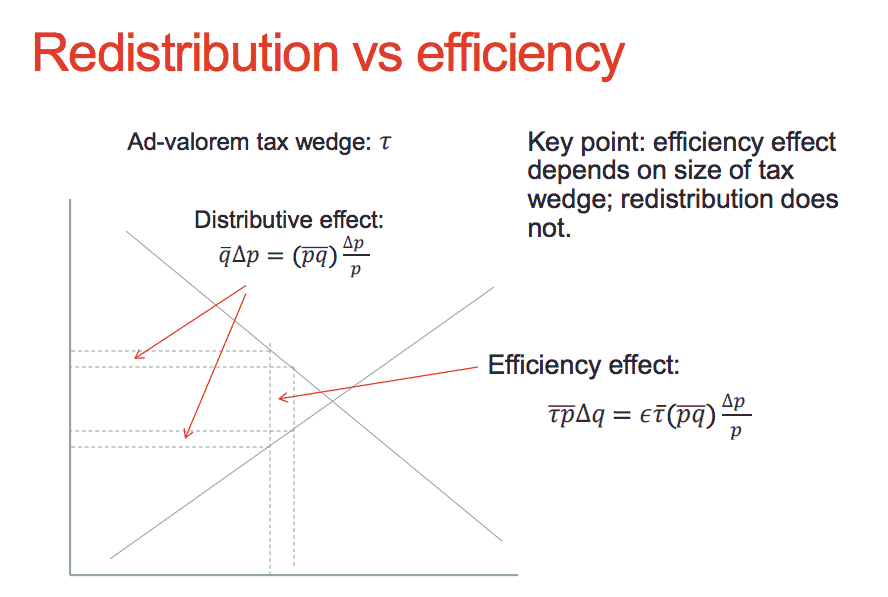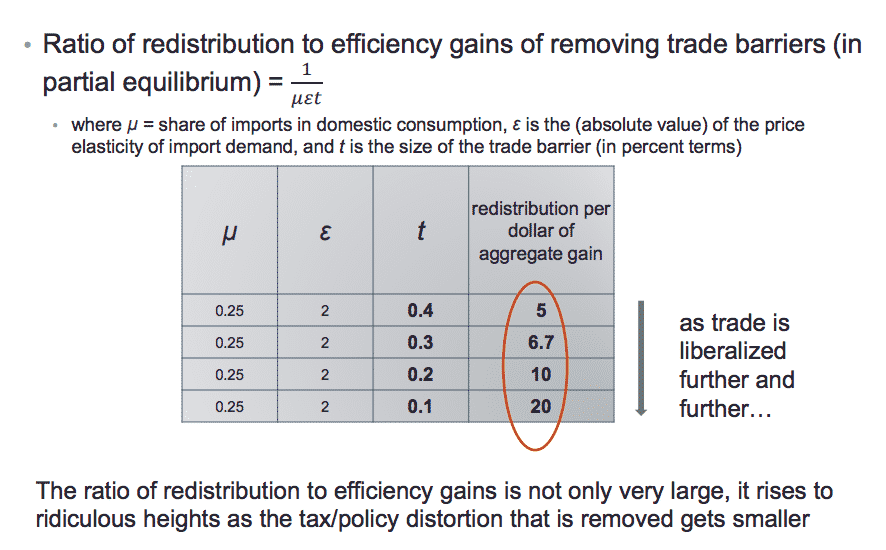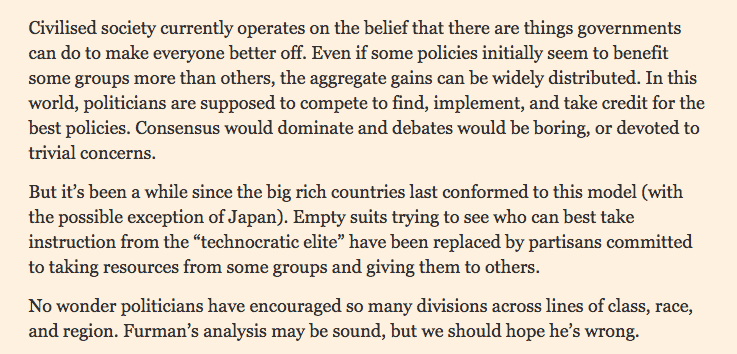A short but important piece appeared in FT alphaville this morning from the always-illuminating Matt Klein. He is riffing on papers given at the conference hosted by Peterson recently on the future of macroeconomic policy that featured all of the great and some of the good. One of the most interesting panels, according to Matt, featured an exchange between Jason Furman, Obama’s last Chair of Economic Advisors, and Dani Rodrik over the the relationship between policies that aim to grow overall output and those that affect distribution. See the Furman slides here and the reply by Rodrik here.
Right the way back to the birth of modern macroeconomics in the late 19th century, the promise of productivist national economic policy was that one could suspend debate about distribution in favor of “growing the pie”. Indeed, ideologists easily deduced that one should suspend distributional arguments so as to maximize growth of the pie. Etc etc This was the essential claim of bodies like the NBER in the US in the early 1900s or the new “welfare economics” in Britain around figures like Pigou.
What Furman acknowledges is that in fact very few policies currently under consideration have much impact on the size of the pie at all. What they do threaten to have is a very large impact on distribution. If this is true it scrambles one of the most basic assumptions framing economic policy.
Rodrik adds a neat geometrical rationalization that will appeal to those who know some welfare economics: rectangles v. triangles.

But he then sharpens Furman’s point by pointing out that as the impact of policies on growth becomes more and more incremental, the ratio of distributional to growth impacts soars. NAFTA, for instance, was preeminently a vehicle for redistribution not growth in the US. This goes along with the observation by Martin Sandbu that the positive efficiency effects are highly skewed to certain sectors e.g. the auto-industry.

Klein then draws out some political implications by arguing that this new trade off between growth and distribution changes the basis for politics in capitalist democracies. If the problem of economic policy is not win-win, positive sum, then things get ugly fast. Here is Klein:

Of course, none of this will come as any news to those committed to one or other version of radical political economy. But it shakes conventional policy thinking to its core. The names involved in this debate and its location are remarkable. The fact that such arguments can be articulated by these people in these places at this moment is itself significant. It is further evidence of the decomposition of a paradigm of economic policy that defined the “long twentieth century”.

